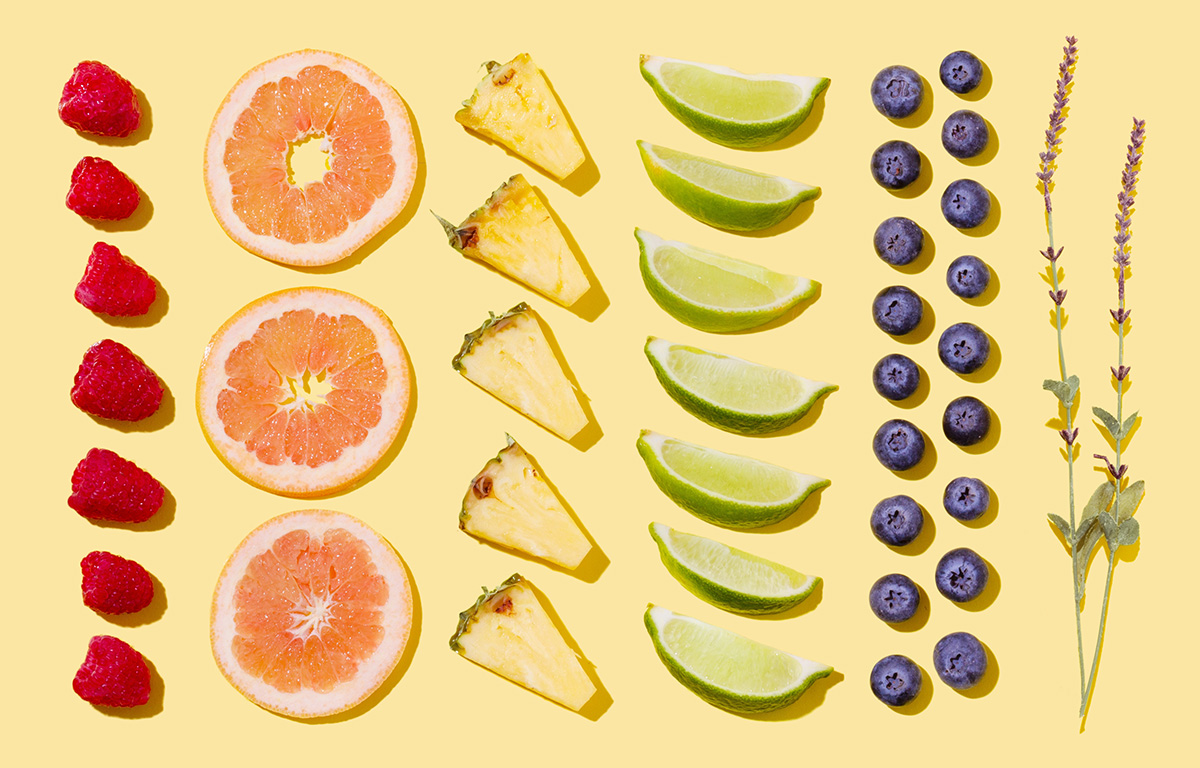Too much acid in the body causes loss of energy, creates a friendly environment for cancer cells, and accelerates ageing. Many of the foods and drinks we consume on regular bases are acid forming and detrimental to our health and wellbeing.
Take care of your pH balance
pH of our body shows how acidic or alkaline our organism is. Too much acid indicates to acidic residues which is a happy place for bacterial overgrowth – something that you might actually not want. Bacteria and various microbes multiply in such environments and as such may cause imbalance and disease in our bodies.
Acidic blood has negative impact to the cells of the body which, if damaged, cannot fight against the bacteria, and they transfer less oxygen which results with less energy and various health issues. This is why it’s essential to keep one’s pH neutral.
Unhealthy Western diet
The more meat, dairy produce, wheat, rice, sugar, alcohol, coffee, and processed foods including commercial breads, biscuits and cakes we have on our table the more acidic we are.
Often we face indigestion or burping after a meal, adding coffee, tea or worse – alcohol to the mix which is another burden to our digestive system. Western diet is now recognized as a contributing factor to the types of diseases like diabetes, heart disease and cancers, etc.
Of course – nothing detrimental would happen if we consume acid forming foods in moderation but since the most of us consume those on regular bases it is a heavy burden on our kidneys and liver. Furthermore, kidneys would use additional magnesium to alkalize waste matter – in case the levels of this mineral are low or insufficient, kidneys shall leach it from bone tissue…
The 80/20 rule
Eating alkaline foods helps to maintain pH balance – this should be part of one’s lifestyle. Regular varied alkaline diet with sufficient physical exercise and regular detoxing helps to keep our health in good shape.
For achieving good pH balance, the menu should be 80% alkaline and 20% acid. We warmly suggest you get acquainted with the alkalinity and acidity of foods and create a meal plan. There are many online sources for this and alkaline cookbooks with recipes. Our favorite here is Honestly Healthy by Natasha Corrett and Vicki Edgson – some of the information in this article is also from that cookbook.

For example, when wheat, beans, chickpeas are very acid-forming then buckwheat, lentil and quinoa do so mildly but from starchy grains and vegetables one could consume barley, millet, and lima beans without guilt as they are alkaline.
Tea in general is acid forming but herbal teas are alkaline. All berries are alkaline just as all non-starchy veggies – keep your horses with potatoes.
Lemon water comes for rescue
At the same time there are quick hacks as well, like lemon water which neutralizes acid. It is a good and helpful morning practice for one’s pH levels to make drinking a glass of warm (not hot) lemon water as a habit first thing in the morning.
The recipe is simple: glass of body temperature water with freshly squeezed lemon juice (from half a lemon). To let it have more impact do not consume anything else for at least 15 minutes, better yet – make it half an hour.
This super drink which is also rich with antioxidants and is antibacterial can be consumed also during the rest of the day but for it having an impact on one’s pH levels, it should be drunk between meals.
Make it simple – hack with fresh
It can be overwhelming to know what is alkaline and what is not or how acidic something is, just a bit or very much so etc., so – to make it easy: add fresh vegetables to every meal you have. Add fresh fruits and berries to your day.
And keep in mind that vegetarian foods contain mostly alkaline minerals and have alkalizing effect whilst animal produce along with fermented, caffeinated and processed (including fried) foods are acid-forming.
Do’s and Don’ts
• Limit coffee intake
• Give up on alcohol
• Give up on sauces
• Give up on sweets
• Consume alkaline foods
• Add curcuma to your day as it helps to reduce inflammation
• Consume alkaline water
• Eat fresh with every meal
Signs of too much acid
• Exhaustion
• Weight problems
• Depression
• Acid reflux
• Bloating
• Acne
• Muscle pain
• Food allergies
• Sleep problems
• Concentration problems
• Brittle nails and hair
• Heart rhythm issues
• Bladder and kidney problems
There is no better time than NOW – leave this read and go get yourself a carrot.
